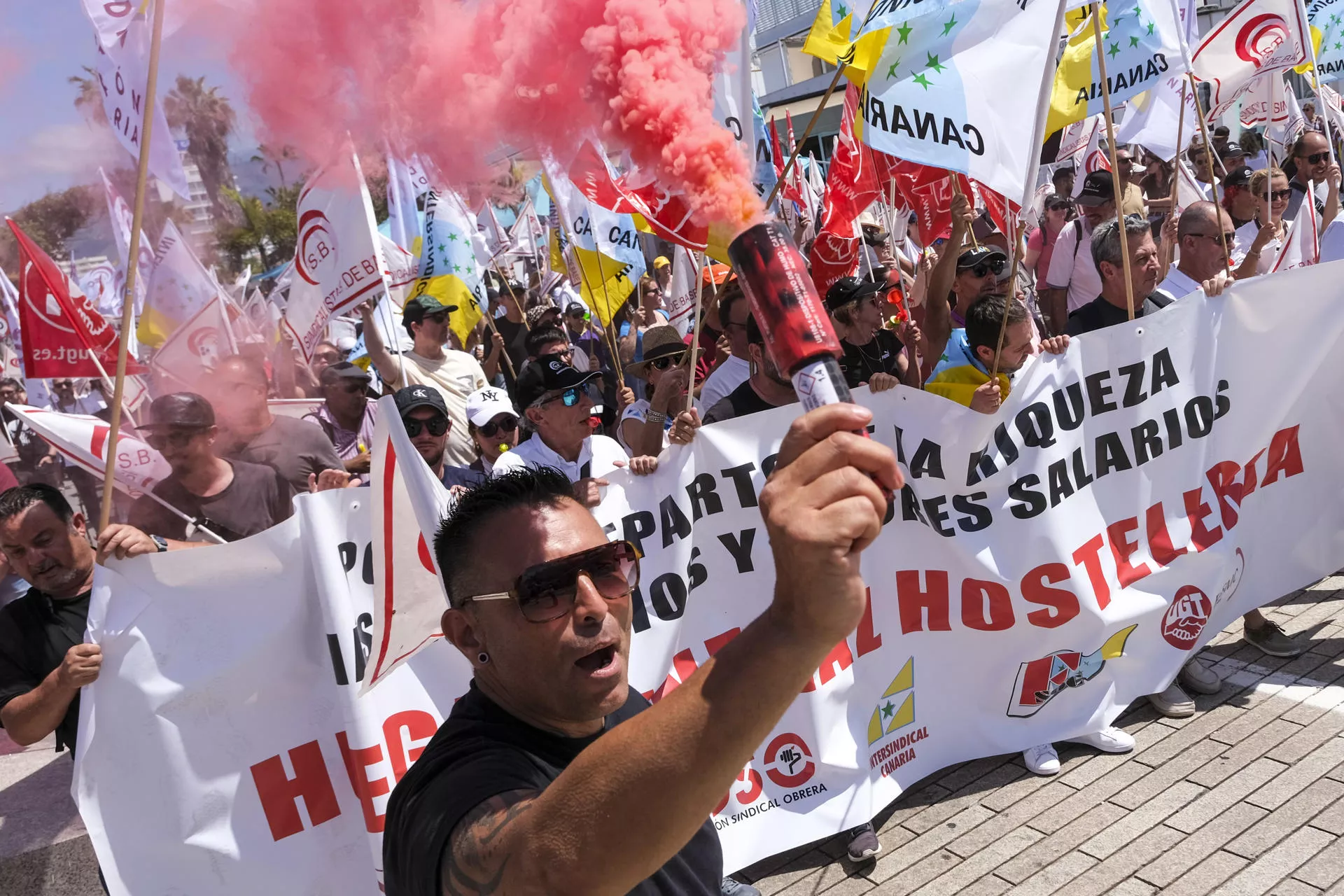
The employers’ associations of the tourism sector and the majority union have signed the new provincial agreement for hospitality, leisure, and restoration in Santa Cruz de Tenerife this Friday.
This agreement will be in effect for the next three years and entails a progressive increase of 13.5% in hospitality salaries as well as a commitment to social peace. According to its signatories, the agreement ensures the purchasing power of around 76,000 workers and mitigates social conflict amid the stabilisation of tourism growth.
From the union side, Javier Fernández, Secretary General of Sindicalistas de Base—majority in the sector—congratulated the workers, stating that thanks to their mobilization and the Easter strike, “employers have finally understood that this agreement was necessary.”
The president of the hotel employers’ association Ashotel, Jorge Marichal, celebrated the signing: “The situation will remain calm over the next three years and that is the best news,” he stated.
The agreement formalises the pre-agreement reached at the end of June, which led to the cancellation of planned strikes for the summer. It was signed by Sindicalistas de Base (ten of the fifteen representatives at the negotiating table) and UGT (three representatives). CCOO, with two representatives, ultimately distanced itself from the agreement, although Intersindical Canaria and USO Canarias joined.
In hospitality and restoration, the text outlines a 7% salary increase for the 34,000 hospitality workers from 1 July during the first year, which will be 3.25% in the second year and the same in the third (all increases based on the initial salary, amounting to 13.5% over three years) with a purchasing power review clause capped at 5% based on the CPI.
In the case of the restoration and leisure sector, the total raise will be 9% for the 42,000 affected workers, distributed as 3% annual increases.
Jorge Marichal emphasised that, following months of labour conflict, it was “the moment of responsibility” to ensure stability in the main economic driver of the Archipelago, despite considering CCOO’s exclusion from the agreement “a mistake.”
“The agreement leaves all of us somewhat dissatisfied, which is why it is a good agreement,” he added. “Employers are assuming a significant salary increase with the guarantee that we will have three years of stability.”
The president of Ashotel also acknowledged that the pact arrives at a time when tourism seems to be experiencing “a soft landing and we will not continue to grow as before,” although he highlighted that this stabilisation occurs with “very good” figures.
For his part, Francisco Javier González (UGT) indicated that the fact that none of the parties are fully satisfied “is a sign that it is a good agreement.” Ignacio Rodríguez (Intersindical Canaria) expressed his support from a “critical” position, noting that while the salary aspect “is very defendable,” other issues were not addressed due to the urgency to finalise the pact.
Jeremías Piñero (USO Canarias) recognised that “it has not been easy for either party,” but he valued that, thanks to their responsibility, “the final result is optimal.” Javier Fernández from Sindicalistas de Base reiterated that the agreement guarantees social peace, as long as what was signed is upheld and workers do not lose purchasing power.
















